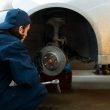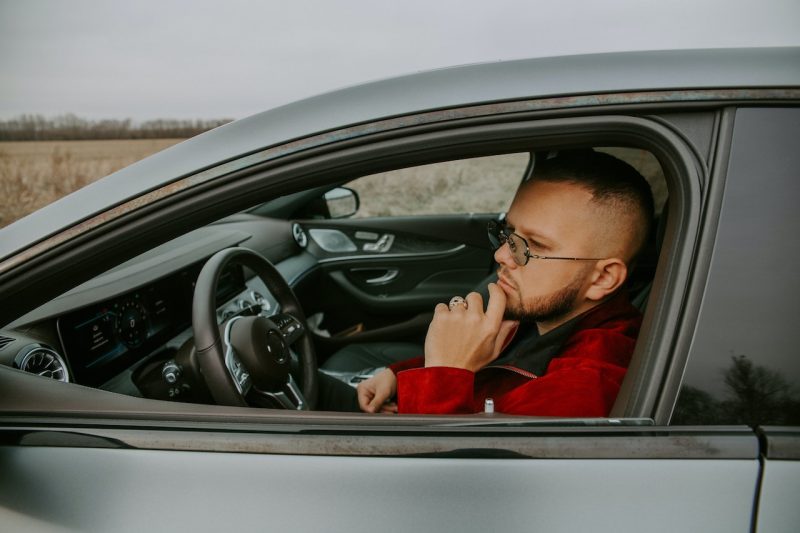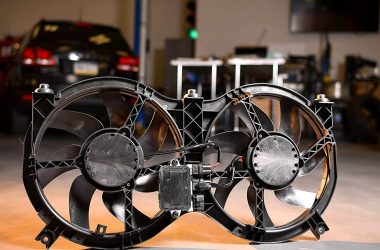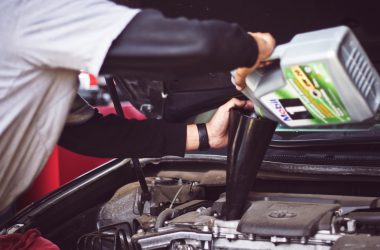We live in a speedy society, and our vehicles play a leading role daily. We depend on our cars for daily tasks like going to work, buying groceries, and vacationing. To complete these tasks smoothly, we need our vehicles to operate correctly. If we do not properly maintain our cars in time, we face many problems that waste time and money.
On such occasions, we find ourselves helpless when we realize something is wrong with our vehicles. And we face many mechanical failures if we don’t look after our vehicles. There are different symptoms of many different mechanical problems. Car jerking when slowing down is a common problem if you don’t maintain your vehicle from time to time.
This type of issue can arise when slowing down, braking or when stopped and raise owner concern. There are some possible reasons that a vehicle jerks off when slowing down. I am writing this well-researched guide to help you and bring you possible causes for car jerking when slowing down.
Table of Contents
Some Causes of a Car that Jerks when Braking
It is pervasive for a car diver to feel jerked while braking. Such causes are far from rare, but require proper attention to fix the problem. These are some common reasons for car jerking when a driver hits the brake pedal.
1. Seized Brake Caliper
A critically seized brake caliper is also the cause of a vehicle jerking when slowing down. A driver experiences jerks and jolts while pressing the brake pedal, as the brake pads are jammed against its corresponding rotors.
In many cases, this kind of malfunction can be recognized by an audible chattering noise.
2. Deformed Rotors
Deformed/warped rotors are also the cause of vehicle jerking when you apply brakes. Vehicle’s rotors deformed with time due to overheating, rapid cooling, excessive wear, or less maintenance.
The drive feels noticeable pulsation or jerking when the brake pads are pressed against deformed brake rotors.
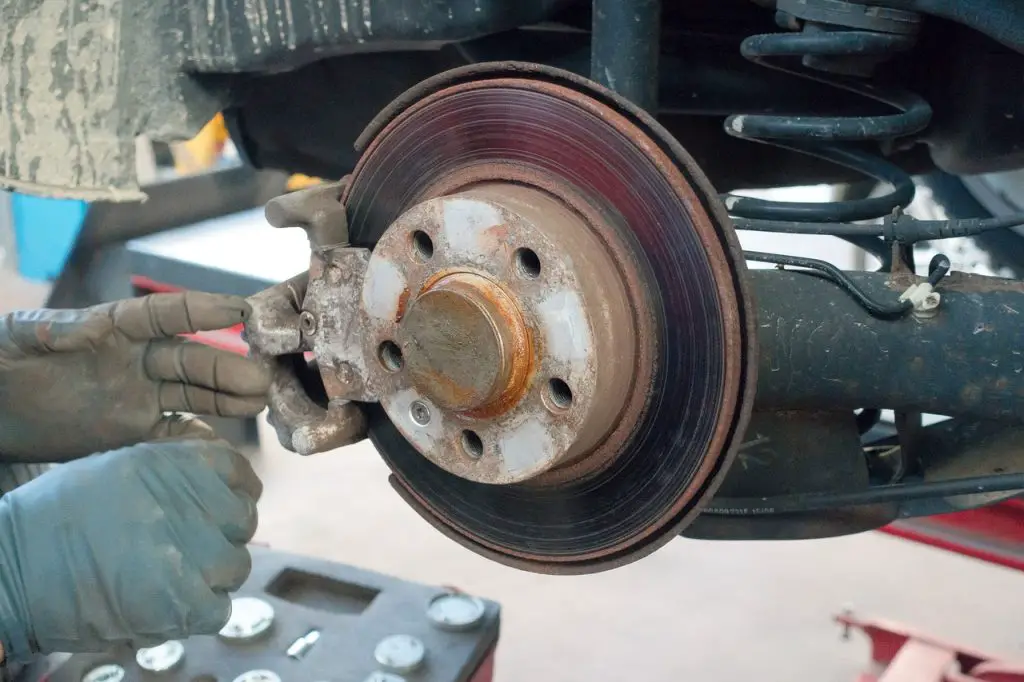
3. ABS Actuation
A vehicle also jerks on slowing down due to the actuation of the ABS( Anti Braking System) Valve will cause a substantial jerking impact when coming to a stop. But when you try to stop rapidly, especially in wet conditions, this effect is nothing to worry about.
But if your vehicle ABS begins to actuate on random stops and you feel jerking every time on the brake, then further diagnosis will be required.
Also Read: 14 Reasons of Car Overheating then Going Back to Normal
4. Faulty Brake Booster
A faulty vacuum-assist brake booster is also a reason for a car jerking when braking. The Vehicle’s booster operates by using a diaphragm under vacuum when a vehicle brake pedal is pressed. If the diaphragm is compromised, drivers experience jerking or thudding during slowing down.
5. Worn Steering/Suspension Bushing
Typical vehicles contain many different kinds of bushings, i.e. ( shock absorber bushing, control arm bushing, steering rack bushing, etc.). These bushings are used to decrease vibration in the vehicle front area.
But these bushing faces wear with time, increasing the vehicle’s muted vibrations. And sometimes, the car jerk due to these faulty bushings during slowing down or braking.
6. Transmission Issue
A car jerking when slowing down can also happen due to transmission-related issues like a lousy transmission control module TCM or a bad body valve. This type of problem can occur in both manual and automatic transmissions. And sometimes this kind of problem causes significant damage to vehicles.
When the driver slows down the vehicle and shifts gears, he experiences a jerk sensation due to transmission issues. Further diagnostics will be required to discover the area of issue.
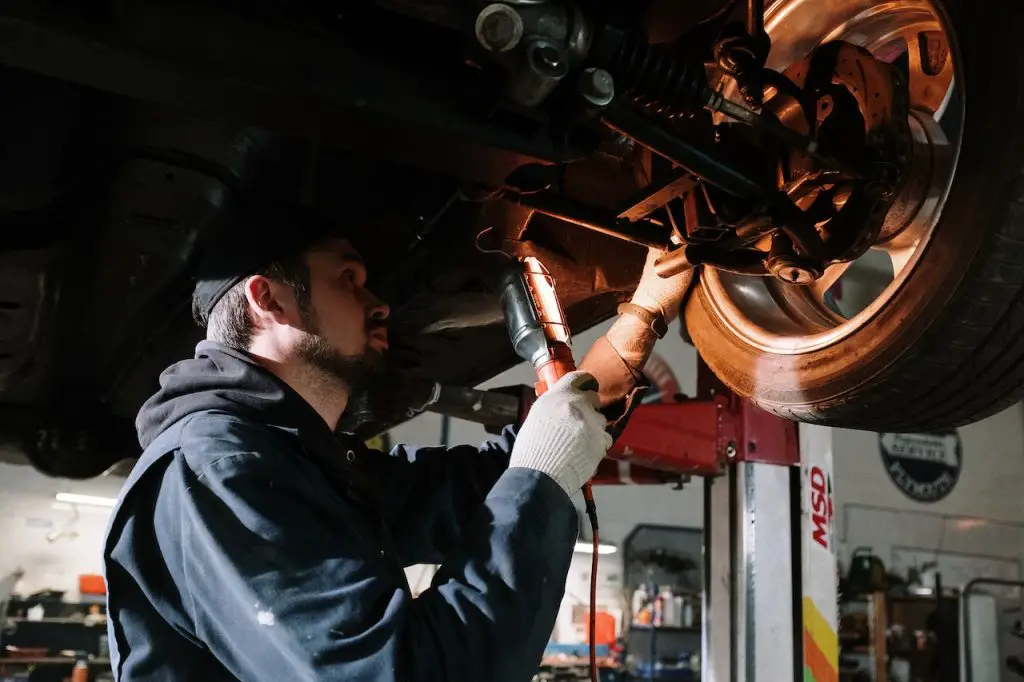
7. A compromised Ignition Coil
An ignition coil is responsible for providing a well-timed spark to each particular cylinder of a vehicle engine. If an ignition coil gets faulty, it can cause misfires at low speeds due to a car jerk. This kind of problem can also arise while driving at high speed. And jerking due to compromised ignition coils is more common while driving at high speed.
A faulty ignition coil can also cause the car to turn off after jerking, so if you find out that your vehicle jerks due to a defective ignition coil, don’t ignore it because it can cause significant problems.
8. Faulty Mass Air Flow (MAF) Sensor
Commonly, a MAF sensor causes the engine to jerk as the driver applies brakes. A Mass Airflow sensor is responsible for measuring the amount of air entering the combustion chamber to maintain the balance of fuel and air mixture.
If the Mass airflow sensor is faulty, it does not calculate the engine’s fuel trims in real-time, which causes combustion irregularities. A measured amount of air does not enter the combustion chamber, which causes the vehicle engine to jerk while slowing down.
Changing the sensor is the best option to fix the problem if the Vehicle jerks due to the MAF sensor.
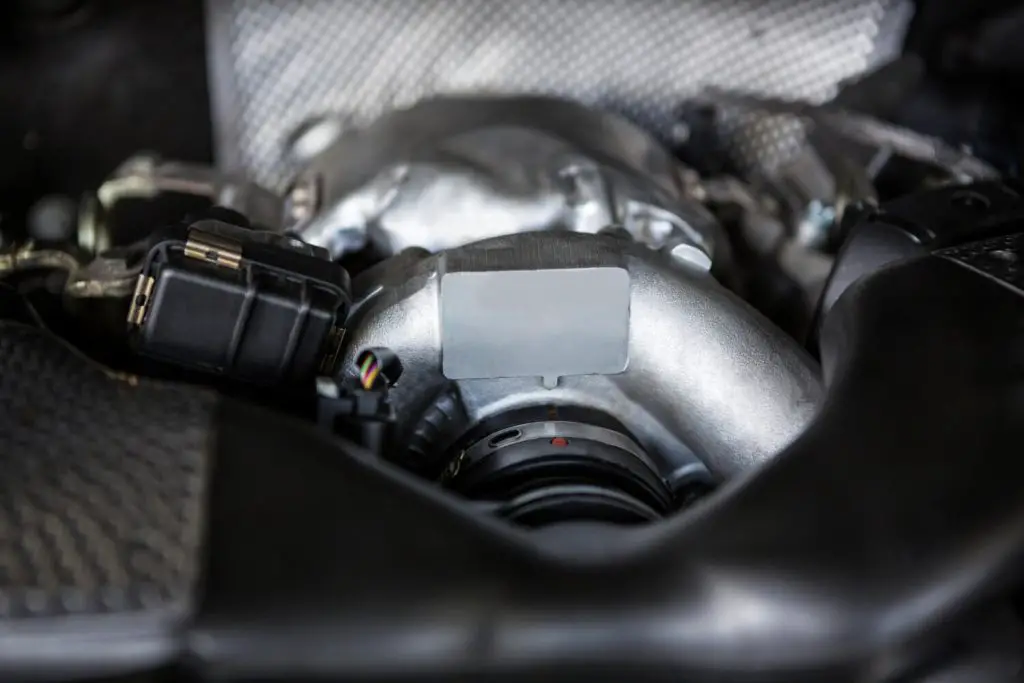
9. Damaged Throttle body
The throttle body controls the amount of air coming into the combustion chamber. If it gets damaged, the airflow system can not correctly balance the fuel/air mixture and its supply. That is why a car can also jerk due to a damaged throttle body. It mostly happens when you are driving at a low speed.
10. Overlay worn Clutch
A car clutch can also cause the car to jerk when slowing down. A clutch can make up 15000 miles depending on the quality and how it is used. If you use a clutch that is out of shape, that can also cause jerking and thudding. The best way to know that a car clutch is responsible for jerking is that if it jerks in a lower gear, then check whether they go away at lower speed in high gear.
11. Fuel Delivery Problem
A car can also jerk on slowing down due to issues in the engine’s fuel delivery system. Your vehicle can experience different fuel system-related issues like lousy fuel injectors, clogged fuel filters, and compromised fuel pressure regulators.
But in most cases, a clogged filter and bad injector can cause car jerking. This kind of problem can be easily detected while sitting idle in parking.
12. Clogged Air Filter
A vehicle engine requires proper internal combustion to work smoothly, and proper combustion requires steady air intake at all times. If the air intake is disturbed for some reason, it affects combustion and the overall performance of the vehicle, and the driver experience jerking on low engine load.
A clogged air filter is the main reason which can interrupt air intake. So, you can face car jerking due to clogged air filters.
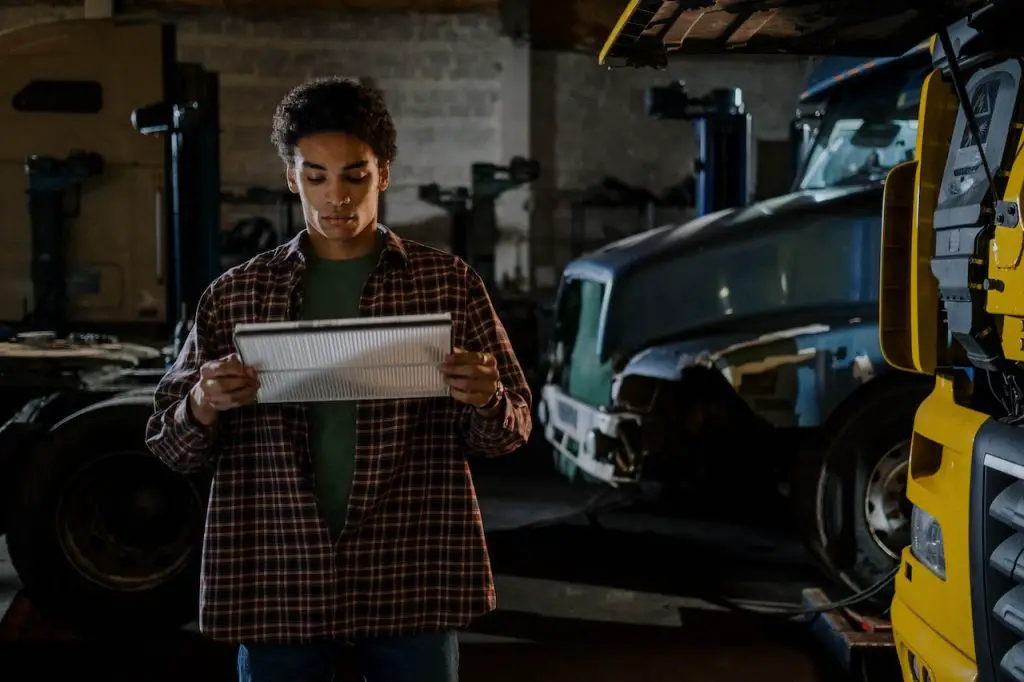
13. Vacuum Leakage
Another reason for cars jerking on slowing down is a vacuum leak. The older vehicles depend on engine vacuum, which supports several critical functions, including EGR operation. The worst thing is that a vacuum leak can lead to a misfire or more severe problems.
What should I do when the car jerks on slowing down?
The first thing you should do when a car jerks is take your car to an auto shop for tuning and maintenance. There are multiple reasons for your vehicle jerking on slowing down. The following are some possible things you should do when car jerks.
Have the brakes inspected
The first thing you need to do when you experience jerks in your car is inspected your brakes. One of these issues that could cause this problem is air in the brake line which gets out easily. You might need new brake pads if you hear squealing on pressing the brake pedal.
But the worst case is wrapped brake rotors. Rotors get deformed due to damaged brake pads.
Have the Anti braking System (ABS) Inspection
Anti braking system (ABS) plays an essential role in slowing your car and becomes the main cause of car jerking when slowing down. If your vehicle ABS gets faulty, you can check its warning light in the car dash display.
This light indicates whether ABS has a faulty sensor, debris buildup, or bad wiring issues that affect ABS regular operation. If you feel jerking while slowing down and find that it is due to ABS take your vehicle to a mechanic instantly, or it can cause major damage.
Check Transmission
Check vehicle transmission by shifting gears at low speed for manual vehicles. If your car jerks due to bad transmission, then it’s a critical issue, and get it fixed as soon as possible. Transmission repair or rebuild is an expensive and time-consuming task as it is a vehicle’s most critical and complex part.
If you ignore a bad transmission, it can cause significant damage, or sometimes you have to replace the whole transmission. But sometimes inspection reveals that your transmission fluid level is low, which is less expensive and fixed in no time.
Conclusion
These are some possible reasons for a car jerking when slowing. If you experience jerking on braking and slowing down, check for the problem as mentioned above to find out the problem. Most importantly, if you face vehicle jerking and making noise, do not panic; drive your car slowly and bring it to a safe place or an auto shop if possible.
If you realize that this issue affects your vehicle operation, then you should pull over in a safe place.



